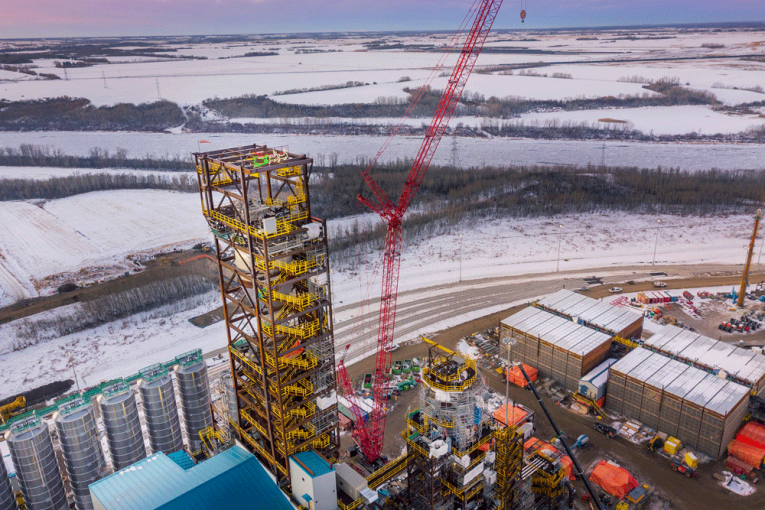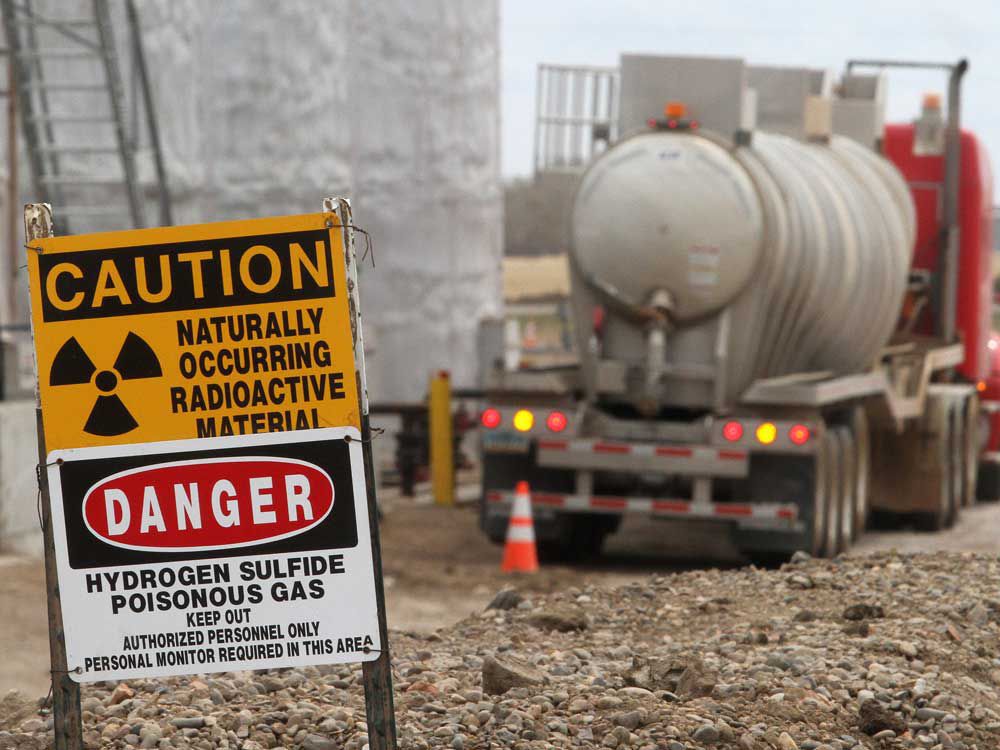
The seismic collapse of oil prices that began one year ago left weakened Canadian energy companies vulnerable to the pressures of consolidation.
Will a sharp recovery in prices change that dynamic in 2021?
Two different takeover deals are providing insight into how companies — and investors — see M&A activity playing out this year.
Inter Pipeline Ltd. is trying to fend off a hostile bid from Brookfield Infrastructure Partners LP and is now looking for a better offer.
On Tuesday, the board of the Calgary-based midstream company rejected the unsolicited bid from Brookfield, dismissing the proposal as being opportunistic.
Inter Pipeline CEO Chris Bayle said it doesn’t reflect the underlying value of the company and the benefit of its Heartland Petrochemical Complex now being built in Strathcona County in Alberta.
And he also believes it doesn’t reflect the recent rally in energy markets.
“We don’t think that offer factors in at all the considerable strengthening in energy prices and petrochemical prices that have happened from late last year to today,” Bayle said in an interview Tuesday.
Brookfield’s bid for Inter Pipeline was
launched last month
and offers $16.50 a share for the target company. (Inter Pipeline closed Wednesday at $18.18 on the Toronto Stock Exchange.)
Since an initial Brookfield approach to the company in November, the price of benchmark West Texas Intermediate crude (WTI) oil has improved dramatically, climbing from around US$40 a barrel to
over $60
, notes the Inter Pipeline directors’ circular.
At the same time, the price gap between feedstock propane and polypropylene — a plastic that will be produced at the Heartland facility — has risen by about 90 per cent, it states. The company’s $4-billion complex is slated to start operating next year.
The company has been seeking a partner to acquire a stake in the big-ticket project and Bayle said the timeline of finding one in the first half of this year remains intact.
The pandemic affected the company’s push to find a partner, but “a lot of the dynamic has changed now,” he said.
“There has been a significant improvement, I’d call it, in market tone with the strengthening of oil and petrochemical prices,” Bayle said.
“And I think a lot of companies we’ve been talking to are now considering how best to move forward with the growth mindset — and we think that helps with our discussions.”
Officials with Brookfield declined to comment on Wednesday.
Inter Pipeline began a strategic review process last month and Bayle said he’s “quite confident there will be other parties that have serious interest in Inter Pipeline.”
Meanwhile, Secure Energy Services Inc. announced Tuesday a
friendly $478-million takeover
of Tervita Corp., a move that will create a larger midstream infrastructure and waste management services provider.
The all-stock transaction for Tervita also includes the assumption of $866 million in net debt, noted a report by ATB Capital Markets.

The merger is expected to lead to cost savings of $75 million annually within 18 months of the deal closing. Tervita has about 1,200 employees, while Secure has about 950 people.
Secure CEO Rene Amirault said preliminary discussions with Tervita began in the middle of last year and both sides “could see the industrial logic of putting the two together.”
Industry dynamics have changed in the past year with higher oil prices and an upswing in business, although Amirault doesn’t see the consolidation trend slowing down.
“We look to our customers,” he said Wednesday.
“You will see more customers on the producers’ side consolidating. They are far from done. A lot of the things they want, we want. They want more market relevance, a lower cost of capital. We all have to get more efficient here.”
While higher oil and gas prices may reduce the immediate need for some companies to merge, he noted the sector has to consider what will happen over the next five years and beyond.
“I don’t think anyone wants to be short-sighted and say that oil is going to stay at $60 forever,” Amirault added.
After the sudden collapse of oil prices a year ago,
the Canadian industry
witnessed
a series of mergers and acquisitions
as distressed companies looked to find a partner.
The value of deal-making climbed to $20 billion last year from $8 billion in 2019, according to Sayer Energy Advisors.
So far this year, the upstream Canadian oil and gas sector has seen $6.9 billion of M&A activity compared with $250 million in the first quarter last year, said Sayer Energy president Tom Pavic.
The industry has seen conditions improve rapidly this year. Oil prices have jumped 35 per cent since the start of January, with benchmark U.S. prices closing Wednesday at $64.44 a barrel.
Although companies are growing stronger, investors expect the takeover trend will continue.
Michael Tims, vice-chair of Matco Investments, said there appears to be growing consensus on where commodity prices are headed and transactions are easier to finance in a higher oil-price market.
“Overall, I am still expecting we will see more M&A activity,” Tims said. “It’s just way smoother to do deals when you have a more positive environment.”
Eric Nuttall, a senior portfolio manager with Ninepoint Partners, believes the drive for petroleum producers to join forces will continue as companies seek efficiencies and strive to get on the radar screens of more investors.
However, the motivation behind some deals in the past year — intense financial pressure squeezing highly leveraged companies — is changing.
“We are well beyond the valley of death now,” Nuttall said.
“With a $60-plus crude environment plus tight differentials, I have no companies I’m worried about at all. Now, consolidation is from a position of strength.”
Chris Varcoe is a Calgary Herald columnist.
You can read more of the news on source
